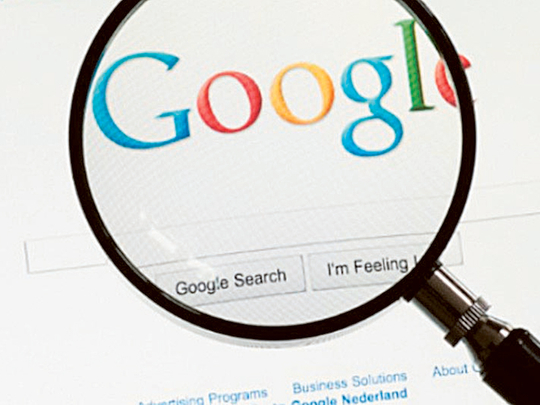
There are those who google and there are those who annoy those who google. As a member of the former group, people who don’t reflexively look things up online have at best rendered me speechless and at worst left me fearing for the fate of humankind.
I have, however, recently learnt that those who turn to a search engine at the slightest mention of a forgotten factoid might not be all that better off.
Before discussing the latest research in this area, it’s worth travelling back to 2011 when some commentators contributed to the genre of “this new technology is definitely going to ruin us this time”.
That year, Betsy Sparrow of Columbia University and colleagues published an article in Science entitled “Google Effects on Memory: Cognitive Consequences of Having Information at Our Fingertips”, triggering starting guns for the latest existential crisis about the web.
The researchers themselves had a positive take on their findings. Sure, the test subjects were bad at recalling memorable bits of trivia — such as an “ostrich’s eye is bigger than its brain” — when they thought the data were being saved by a computer in front of them.
And, yes, the subjects’ recall was better when they were told that the data wouldn’t be saved. But the interesting part was a separate experiment in which the trivia was saved in generically named folders such as “Facts”, “Data” and “Info”.
The participants could recall which folder a fact was in nearly half of the time, but could only recall the facts themselves 23 per cent of the time. As the researchers wrote: “These results seem unexpected on the surface, given the memorable nature of the statements and the unmemorable nature of the folder names.” Or as Dr Sparrow told the New York Times in an interview: “That kind of blew my mind.”
That we remember where facts can be obtained, rather than storing the information itself, is not new. The storage systems may be books, notes, USB keys, the web — or indeed colleagues or friends. When someone interrupts you at work and says, “Hey, I’m having trouble with a deck and I heard you’re a wiz with PowerPoint,” they are using you as memory storage. And when you stare at the wall behind them and ask if they’ve googled for a solution before coming over, you are indicating an unwillingness to act as an IT helpdesk.
But those, such as me, who google before asking for assistance may face an unexpected pitfall. According to research published recently by a group of Yale University academics, the mere act of using a search engine may lead us to overrate how much we know.
The researchers set up a number of experiments. In most of the scenarios, half the subjects used a search engine to look up preselected topics and the other half would not. Then all the subjects were asked to rate their ability to answer questions in a totally unrelated topic area. The group that used a search engine in the first step rated themselves as significantly more able than the second group.
Several experiments tested for a number of obvious explanations for why this overestimation might happen. What if the first group were told exactly what to type into the search engine and the second group was shown the same article that the first group was directed to? What if both groups spent the same amount of time performing the first step? Or if the information being sought wasn’t something the web could help with? Or if no search results showed up at all? Or if different search engines were used?
In every case, the group that had some interaction with a search engine rated themselves higher.
As to why this might be the case, the researchers think we might be losing track of how much the internet is relied on for instant access to information and consequently we have become “miscalibrated” with respect to our true knowledge.
Pending further research, this illusion of knowledge after interacting with a search engine may need to be added to the long list of common biases we already know we suffer from.
In the meantime, it may be worth remembering this possibility the next time you use a search engine. Or, failing that, remember where you found this article.
–Financial Times













